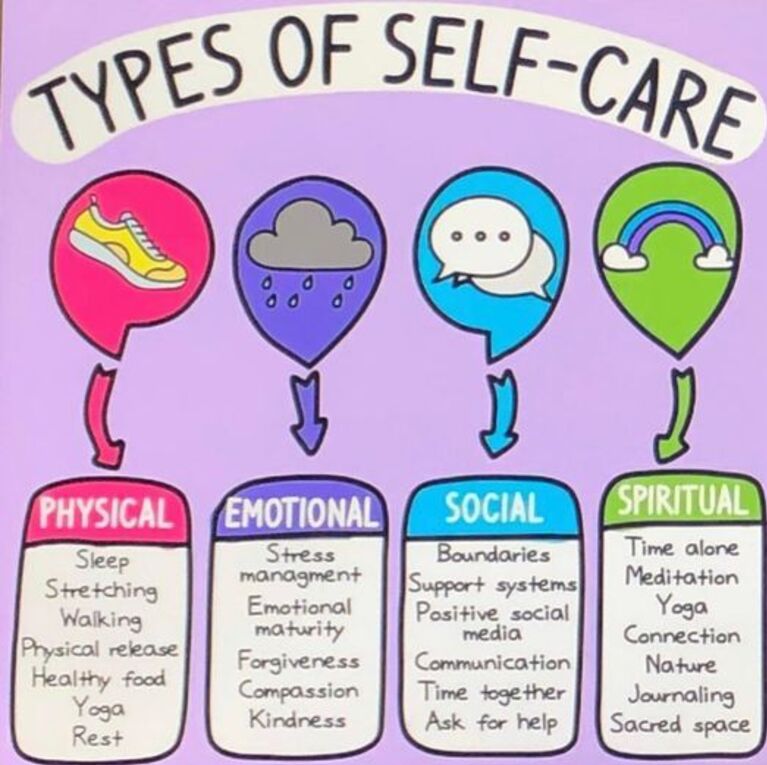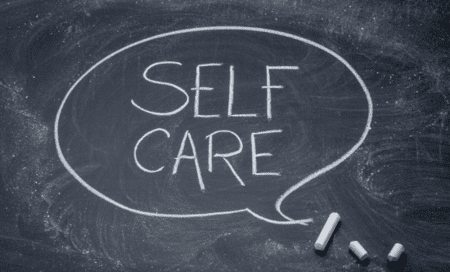This article has been co-authored with Aleena Islam, an 18-year-old teen.
In a world moving at an increasingly fast pace, I often find myself overwhelmed and inundated by the never-ending stimuli surrounding me. At a young age, I was made aware of my mind and body’s specific needs, a primary one is slowing down and taking a moment just for myself. Though I enjoy social interaction and quite honestly anything that invigorates me. I also understand that there has to be a balance maintained, and it is imperative for me to take time out for myself.
I have realised that in order to ‘have my own back’, I must acknowledge my needs and accept the mechanisms that ultimately help me cope with everything going on around me.
This acknowledgement is what introduced me to the arena of self-care.
Walking the fine line between caring for yourself and perceived selfishness.
So, What Really Is Self-Care?
While I’m undoubtedly sure it’s a term many of us have heard, I feel as though few are able to grasp its essence truly. On a physical level, it is defined as the process of taking care of oneself with behaviours that promise health and active management of illness when it occurs. This may include daily activities that we perform almost mechanically, such as eating, sleeping, exercising, etc.
However, on a more metaphysical or psychological level, self-care is considered to include practices that help soothe the mind. Such as taking time out to be present with oneself and discovering what helps you manage. This could include meditation, practising mindfulness, journalling, expressing oneself through art and music, and a plethora of other routines.
As someone who personally suffers from anxiety, self-care is incredibly pertinent to my daily functioning. While on most days my anxiety is manageable with the help of certain coping tactics I’ve learnt, I can’t deny that there are days when it all seems to be too much, and I have to remind myself to slow down.
It is on these days that I take time out for myself, and truly value the time I spend practising self-care. However, I had to learn the hard way. That in a collectivistic culture such as ours, self-care may not always be perceived as healthy.
Why Is Self-Care Considered Selfishness?
Many, especially from generations before ours, are accustomed to the idea of selflessness at any cost. Though ours is a generation that realises the consequences that might bear. These ideas are alien to some and may be considered ‘selfish’ or ‘insensitive’.
It may be easy for me to recommend you tune out these opinions. But that is a rather impractical and harsh approach, that many cannot afford to practice. I, for one, certainly do not find this to be doable, especially when dealing with people I care about.
So, how can we communicate more contemporary ideas of self-care to a generation that may be rather opposed to them?
A Few Tactics That I Have Found To Be Useful:
Open communication

Ensure that you establish a realm of communication that feels comfortable to both you and them. Make sure you communicate that everything you are stating comes from a place of love and respect. And all you aim to do is establish a healthy boundary that will mutually improve your relationship.
Reasonable demands

Make sure that whatever you are asking for. Such as space or time for yourself, is reasonable and approachable for them to explore. There should be a balance that you are aiming to maintain, in order to seem sensible in your standing. For example, if you need some time for yourself, it might be unreasonable to demand complete isolation for an entire day. Instead, try asking if it would be okay for you to allot an hour a day for yourself.
Breaking down concepts into digestible pieces

Try explaining the concept behind self-care, and why you feel as though it is important to practice. For many, it has simply been introduced as a newfangled, inaccessible concept, hence causing harmful preconceived notions to develop. Untangle the concept to them, and you could even encourage them to try it out for themselves!
Link self-care to some more familiar concepts

Often, linking a concept to a starting ground that people are more familiar with helps them understand a newer concept. For example, you may explain that self-care finds its origins in yoga and meditation, which are certainly more commonly understood practices and may help clear misconceptions.
Give them time

It would be unreasonable to expect your elders to instantly grasp and understand the concept of self-care. Empathise with their standpoint, and give them time to comprehend what they are being introduced to. While some may be initially opposed to it, you’d be pleasantly surprised with how they process the concept after sitting with it for a few days.
Self-care is ultimately an approachable and rather comprehensible coping mechanism. Remember that while it may not be instinctive to some, there is always a courteous manner to convey your need for some “me-time”!


















